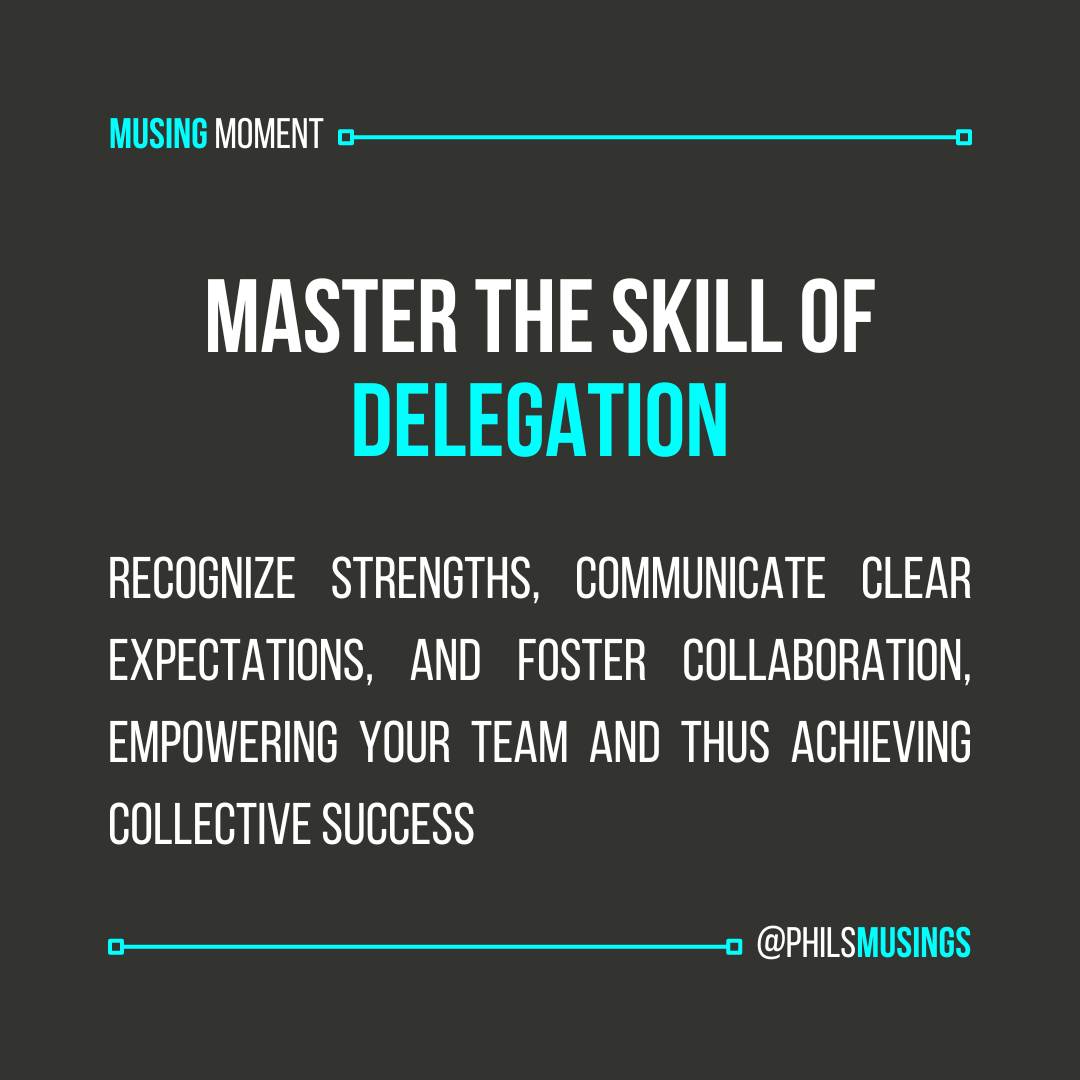Achieving More Through Delegation
In a world that often glorifies the idea of doing it all, delegation emerges as a superhero skill for those looking to achieve more with less effort. It's not about passing the buck; it's about working smarter, not harder. Here are three game-changing insights to help you become a master of delegation.
Tip1: Know What to Delegate
Imagine your daily tasks as a bustling marketplace. You have a cart, and in that cart, you can only carry a limited number of items. Now, each item represents a task, a responsibility, or a project. Some items are light and essential, while others are heavy and less crucial. The first step in mastering delegation is understanding the weight and importance of each item.
Start by assessing your tasks. What are your core responsibilities, the ones only you can handle? These are your golden eggs, the gems that require your unique expertise and strategic vision. Anything that doesn't fit into this category should be considered for delegation. Be ruthless in your prioritization – remember, you're not shirking work; you're optimizing it.
Delegate tasks that align with the skills and abilities of your team members or colleagues. Don't think of it as passing the buck; think of it as an opportunity for others to grow, learn, and contribute. By shifting your mindset from 'I must do everything' to 'we can accomplish more together,' you're setting the stage for effective delegation.
Tip 2: Embrace The Power of Clear Communication
Effective delegation is like planning an intricate dance performance. You're the choreographer, and your team members are the dancers. To pull off a flawless routine, you need clear communication – the choreography, the timing, the cues. Begin by articulating your expectations with crystal clarity. What are the objectives? What does success look like? What are the deadlines?
Think of yourself as the director of a blockbuster movie. You wouldn't start filming without a script and detailed guidance for the cast and crew. The same applies to delegation. Paint the full picture for your team, provide context, and ensure they comprehend not only the 'what' but also the 'why.' When your team understands the significance of their roles and how they contribute to the bigger picture, they're more likely to perform at their best.
Encourage an environment of open dialogue and questions. Emphasize that it's okay to seek clarification or express concerns. Communication is a two-way street, and by fostering an atmosphere where everyone's voice is valued, you strengthen the delegation process. Remember, your goal is to create a shared vision, not to leave anyone in the dark.
Tip 3: Balance Autonomy and Accountability
Delegation is a delicate balance between trust and verification. Once you've entrusted a task to someone, it's crucial to maintain a level of oversight while allowing room for autonomy. Think of yourself as a trapeze artist, gracefully swinging through the air. You release the bar (delegating), trusting your teammate (your delegate) to catch it. But you keep a vigilant eye to ensure a seamless transition.
Regular check-ins and feedback loops are your safety net. They serve as touchpoints to evaluate progress, provide support when needed, and make course corrections if tasks veer off track. Your role isn't to micromanage but to ensure that everyone remains aligned with the overall objectives.
Remember that delegation is a skill that evolves over time. It requires practice, adaptability, and continuous learning. Be prepared for occasional missteps or misunderstandings, and view them as opportunities for growth and refinement. Delegation isn't a sign of weakness; it's a strategic move toward efficiency and empowerment.
In essence, delegation is your path to liberation. By mastering the art of delegation – knowing what to delegate, communicating effectively, and striking the right balance of trust and verification – you unlock new levels of productivity and pave the way for your team's success. So, start delegating like a true leader!
Phil


